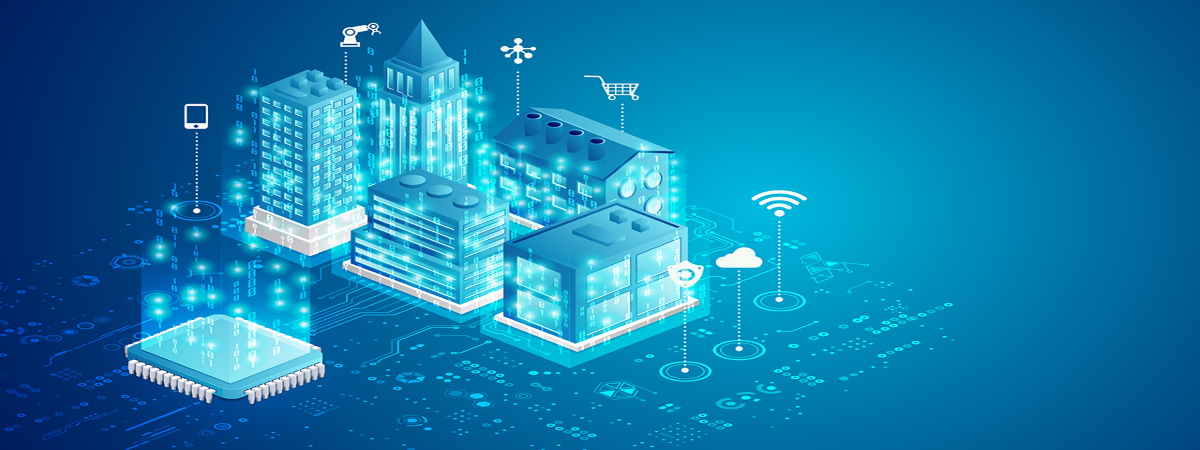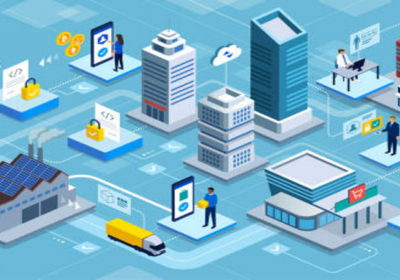
Blockchain technology is not only the basis of the bitcoin cryptocurrency. This system of verifications and secure transactions on the Internet is also set to revolutionize the management of smart cities, something that working groups such as the Blockchain4Cities initiative, a United Nations proposal to coordinate, integrate and control the different urban services in a transparent, efficient and private way, is trying to develop and publicize in order to take advantage of the potential present in this decentralized data storage technology. For those not yet familiar with this disruptive solution, blockchain is, in essence, a system of recording information that makes it difficult or impossible to change, hack or manipulate the system. This means that if a single block in a chain of records were to be changed, it would be immediately obvious that it had been tampered with. If hackers wanted to corrupt a blockchain system, they would have to change all the blocks in the chain, in all the distributed versions of the chain.
So blockchain is essentially a digital ledger of transactions that is duplicated and distributed throughout the network of computer systems (nodes) that are part of the blockchain. Each block in the chain contains a set number of transactions, and each time a new transaction occurs, a record of that transaction is added to the ledger of each participant, node or user in the network. In general, the technology underpinning this type of decentralized database managed by multiple participants is known as Distributed Ledger Technology (DLT) and it is this relatively new solution that promises to help our cities become Smart Cities through a huge range of applications and possibilities.
Blockchain4cities: the project to integrate blockchain into cities.
Most of us are glad that today’s cities are looking more and more like the cities of the future. There are no flying cars or androids walking our streets yet, but with the solutions provided by cryptographic technologies such as blockchain we can build smart metropolises capable of contributing between them 1.29 trillion euros to the global economy in the coming years, according to forecasts by Bank of America Merrill Lynch.
Cities such as Gothenburg, Chicago or Singapore are clear examples of innovative cities, they are highly digitalized and have an advanced and sustainable urban management model in terms of mobility, energy efficiency, waste treatment or citizen participation. These smart cities are the ones that have inspired initiatives such as Blockchain4Cities, to determine what applications blockchain can have in the operation of Smart Cities.
The preliminary results of the research, in which 26 experts from various countries participated, highlight above all the potential of blockchain for municipal governance due to its ability to transmit information securely and without intermediaries. Even so, the group of experts point out that it is a technology that will not solve all urban management problems on its own, and that its use makes sense under the combination of several technological solutions that collect and exchange data collected from a network of sensors installed in the smart city.
Advantages of blockchain for city governance
According to Blockchain4Cities researchers, the most relevant benefits of blockchain for the operation of smart cities are:
- Increased transparency and connectivity. . Cities can interconnect with blockchain vertical services such as mobility, energy or security through a single, open, accessible and transversal system capable of exchanging data with its inhabitants in real time.
- Direct communication. Blockchain makes it possible for public administrations and citizens to interact digitally and without the need for intermediaries. This would speed up, for example, bureaucratic procedures in registries, city councils, etc.
. - Information integrity.. With this technology it is possible to encrypt all or part of a file to share it privately, securely and without the risk of a third party manipulating only what we are interested in
- Efficient management.. Blockchain allows both citizens and governments to know the origin and destination of each resource. In addition, the latter can know how urban services are used without compromising people’s privacy.
Blockchain use cases in cities: Smart Dubai
Among the cities with municipal initiatives based on blockchain, Dubai stands out, which, with an investment of 300 billion dollars, aspires to become the first city in the world to integrate blockchain in all its services. The Dubai government aims to make transactions paperless, is building smart and sustainable municipal services and providing services through decentralized apps. It is also encouraging data collection and sharing to develop and personalize services for the convenience of residents, and already collects road tolls through RFID and payment for transportation services through smart cards. In fact, it is not just Dubai that is using blockchain for many initiatives, there are many other examples of the use of this technology for urban management around the world:
- Security. Blockchain improves the protection of personal data collected.
- Energy.. Blockchain-based smart contracts make it easier for households supplied by solar panels to automatically exchange surplus electricity with other members of the power grid.
- Mobility.. Administrations can find out which citizens use cars on a daily basis and incentivize them with discounts and benefits to use public transport.
- Waste. Blockchain can provide real-time information on garbage containers to the waste collection service so that they know at any given moment whether they are full or empty.
- Participation. . Blockchain platforms ensure security, reliability, transparency and anonymity in public consultations, such as elections, polls, referendums, etc.
Smart City Platforms
Smart Cities need adequate and highly compatible technological ecosystems to be functional and develop successfully. Otherwise, they will grow isolated, with systems unable to communicate with each other because they speak different languages. This is true both for interoperability between blockchain solutions and for any other technology deployed in our cities. This is why there are currently several platforms that act as a framework for smart cities:
United for Smart Sustainable Cities (U4SSC) is a global smart and sustainable cities initiative that provides an international platform for information exchange, knowledge sharing and partnership building, with the aim of formulating strategic directions to achieve the Sustainable Development Goals (SDGs), and implement the New Urban Agenda and other international agreements. This UN initiative aims to become the platform that drives information and communication technologies on the road to smart and sustainable cities. This initiative is also the parent of the Blockchain4Cities working group.
Fiware: A framework of open source platform components to accelerate the development of smart solutions. The FIWARE Foundation drives the definition – and open source implementation – of key standards that enable the development of portable and interoperable smart solutions in a faster, simpler and more affordable way, avoiding vendor lock-in scenarios, while fostering FIWARE as a sustainable, innovation-driven business ecosystem. The European Union (EU) is behind this open source platform that provides tools and a suitable ecosystem for developers of online applications and services. Although Fiware was not designed to specifically support smart cities, it is able to ensure interoperability between cities.
DownTown: is one of the systems most adapted to smart cities. This platform has between 13,000 and 20,000 smart city domains in the world, including London and Dallas, with the first local restaurant access experience.
In a nutshell
Blockchain is a novel technology that can eliminate market inefficiencies and stimulate economic growth when applied to existing businesses or industries. It can empower smart cities as it enables information sharing without the need for a single administrator and a single point of failure, allowing network members to share data with a high degree of reliability and transparency. Advanced technology, including blockchain, can play a key role in solving these social problems and achieving efficient city management.



